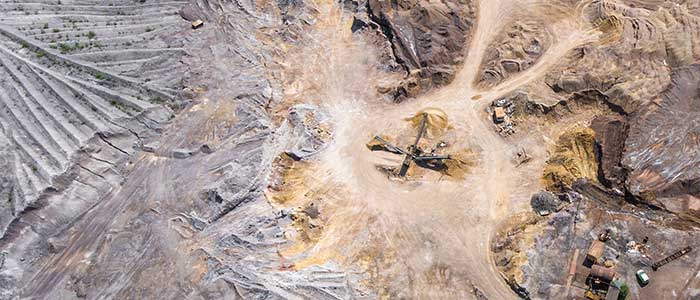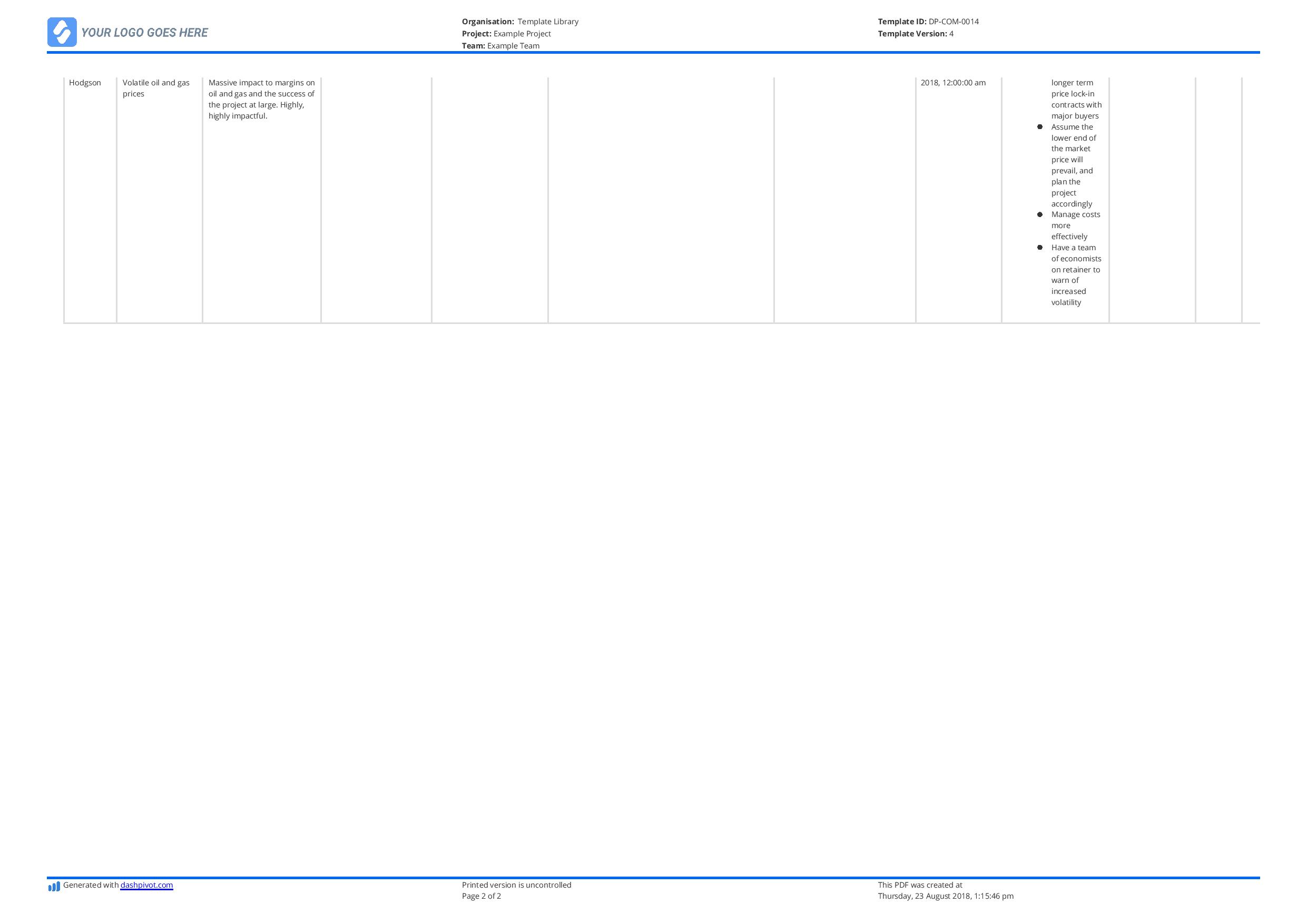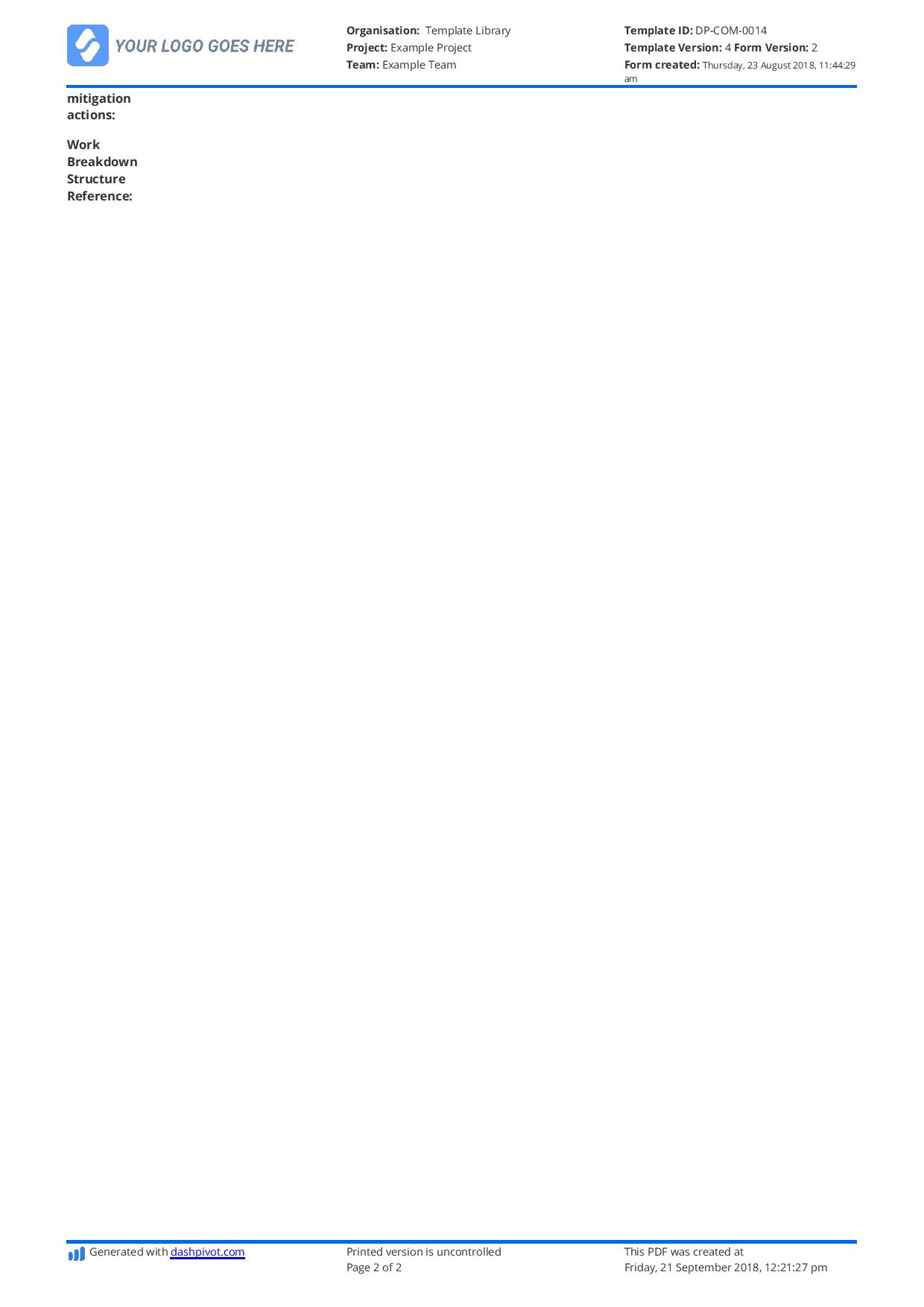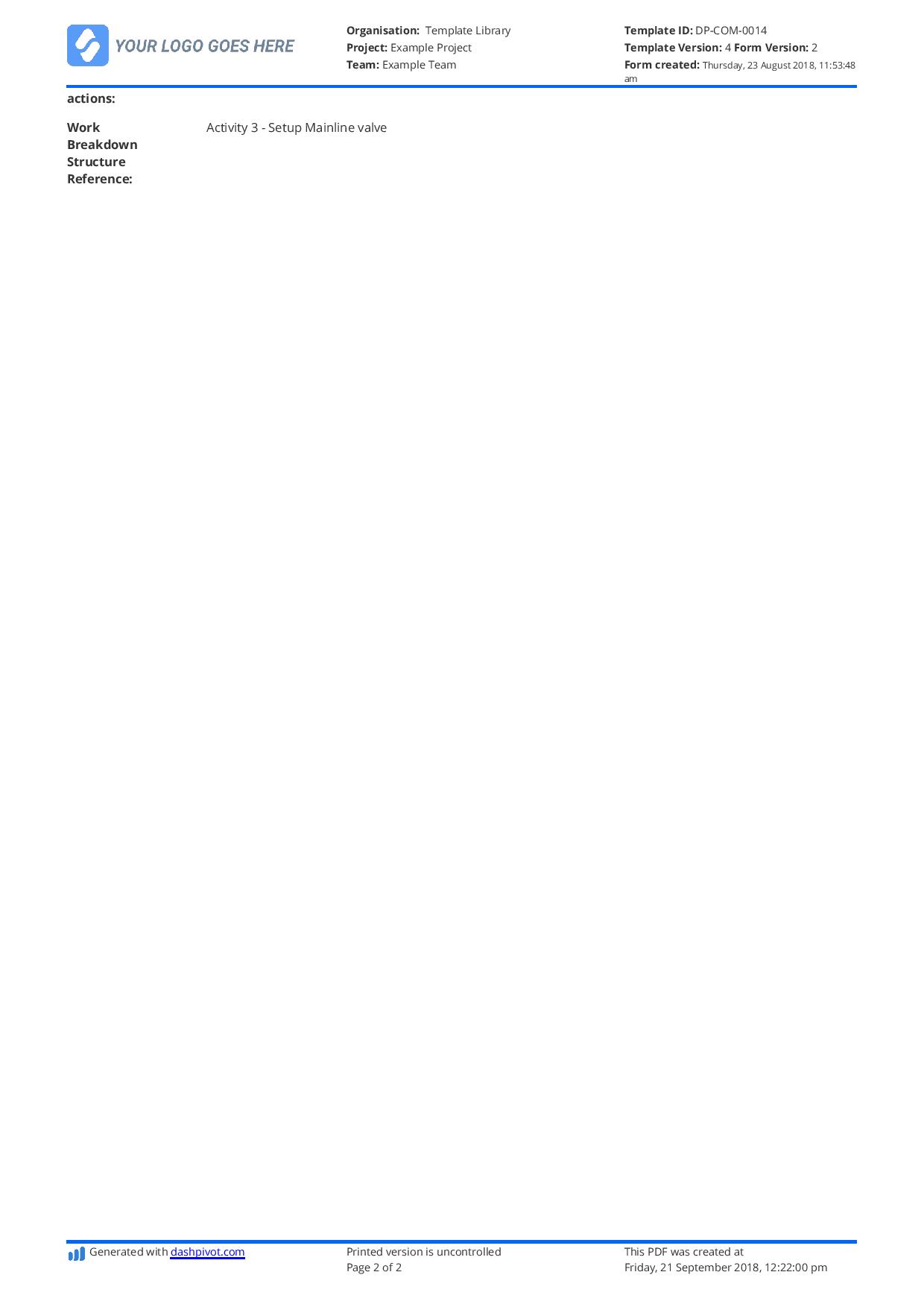Commercial – Oil and gas risks
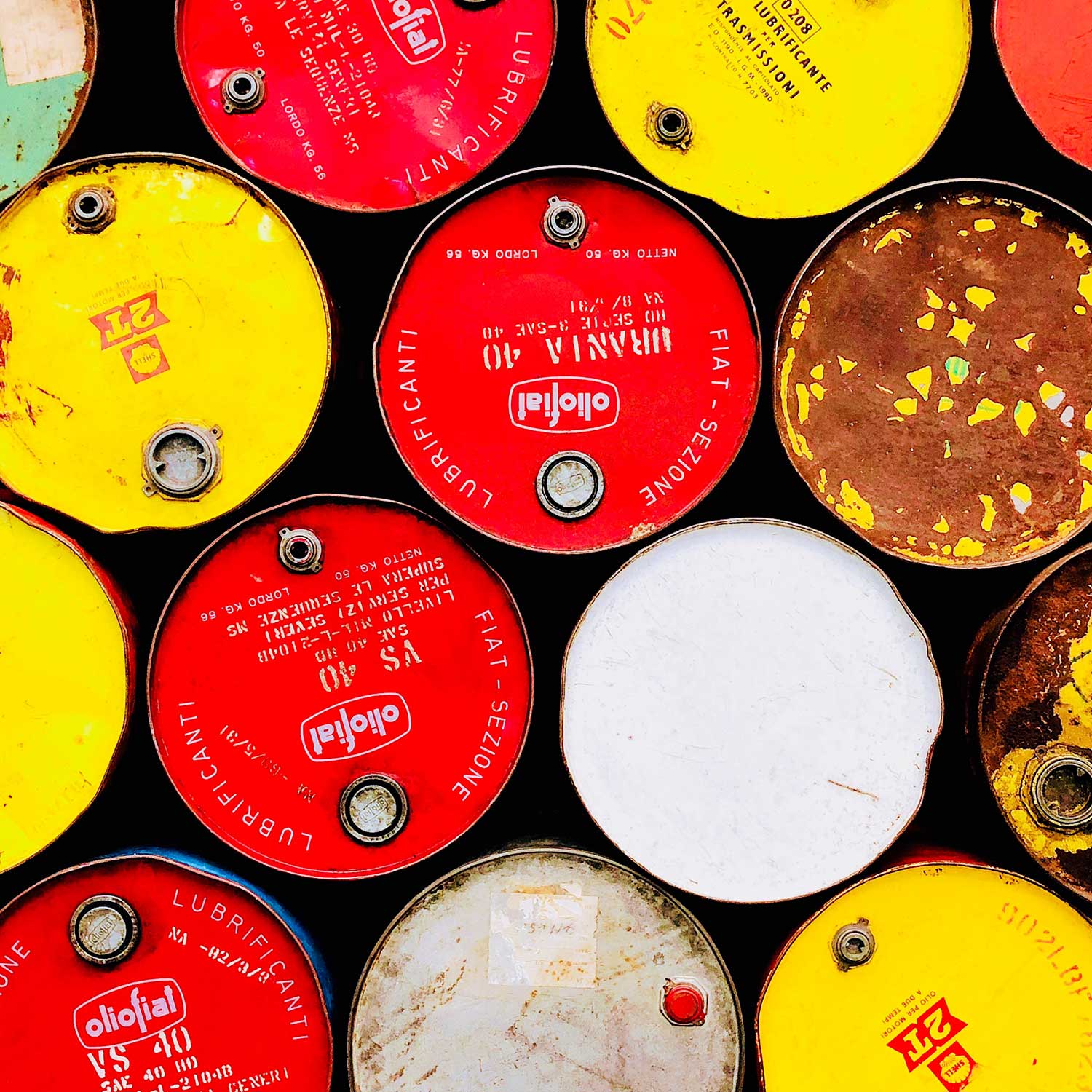
Oil and gas risks: Industry, audit and commercial risks
About oil and gas risks
Oil and gas projects are some of the largest, logistically challenging and lucrative projects in the world. Oil and gas reserves don't typically make themselves easy to find or easy to extract, so the projects are inherently difficult too.
In addition, the materials we care about extracting and refining in oil and gas projects are inherently dangerous when they aren't handled, stored and moved carefully.
If that wasn't enough, the pressure on producing and driving costs down for oil and gas based commodities is immense. The world relies on energy, so any project costs which have an impact on the quality or delivery of the end product annoy and upset a lot of people - and can have carry on effects throughout the world and entire industries.
It also doesn't help that people love looking at the energy companies who operate and maintain these projects as the 'bad guy'. Any sign of trouble or weakness is quickly jumped on by people, and by the media.
All of these factors add up and combine to create a highly volatile environment full of risk - full of risks which span the spectrum across environmental, commercial, legal and general industry risks.
How to manage oil and gas project risk
There is no way to eliminate the risk associated with oil and gas projects. It's impossible.
However, there are ways in which companies and projects can mitigate their risk and ensure that they have taken all of the steps (within reason) to reduce the likelihood of risks turning hazards or catastrophes; the type of catastrophes we have witnessed in the all-too recent the past.
The best way to manage and avoid risk is to be aware of and prepare for potential risk.
The best case scenario for risk management is that you create preventative measures which stop risks from eventuating; the worst case scenario if you take the necessary precautions is that you can respond quickly and properly to the hazards or incidents before they get too far out of control.
The most reliable mechanism for preparing for oil and gas project risk is the risk register. Risk registers as a document summarise the risks associated with any particular project - and score each risk on a couple of extremely important dimensions:
- An assessment of the likelihood of the risk occuring
- An assessment of the seriousness if the risk if it does eventuate
Together, this risk 'score' enables teams to better understand which risks they should be most prepared for, and where they should be moving their resources.
Creating and completing a risk register is also a great exercise, because it forces management and project teams to sit down, brainstorm and think about the risks across projects. This is usually half of the battle.
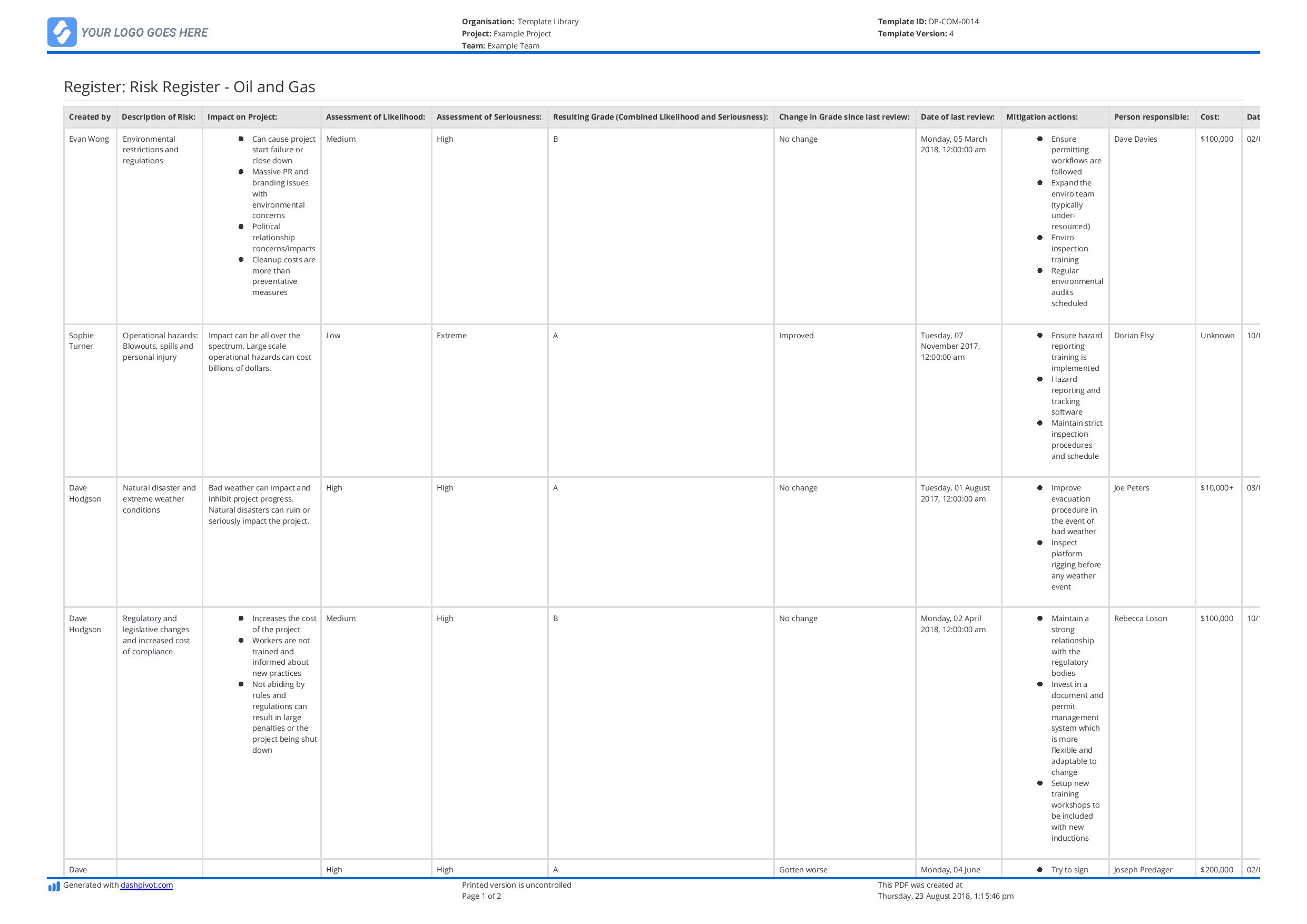
Use and customise this oil and gas risk register for free.
Examples of oil and gas project risks
There are a number of different 'types' of oil and gas project risks, some of which are inherent in all projects, and others which are unique to the economic situation, environment, or work being performed.
It's your job to create and complete your risk register and think deeply and strategically about all of the possible risks on your projects. But, to help, the next few paragraphs will summarise a few of the common risks associated with oil and gas projects, which include industry risks, audit risks and commercial risks.
Industry risks e.g volatile oil and gas prices
The oil and gas industry is a massive industry. The oil market alone is worth $1.7 trillion.
The scale and important of the energy sector and oil and gas industries carries with it a bunch of risk. Some of this risk is internal, some of it external, and some it a combination of the two.
One of the most common and constantly-present risks which can make or break oil and gas projects and destroy oil and gas companies are volatile oil and gas prices.
94 million barrels of oil are sold every day. A small fluctuation in the price of a barrel of oil can cost companies millions or even billions of dollars. Consider the consequences and scale of a change in oil prices from $100 per barrel to $50 per barrel.
That means the industry (the majority made up of a few key players) moves from generating $9.4 billion per day to $4.7 billion per day.
$4.7 billion in revenue wiped off the top line - with the costs of extracting and refining those materials remaining largely the same.
This type of risk and consequence is what truly scares oil and gas companies, and while their margins are usually pretty healthy, this type of hit always hurts.

Audit risk e.g regulatory changes
Regulatory and audit risk on the industries is also a major contributing factor to the overall risk profile of every project.
The oil and gas industries, because of their importance and inherent danger (to the public, environment and workers) attract a lot of regulatory and legislative attention.
Changes in the economic conditions, technology, methods used to extract, refine and use energy and changes in government and agencies can often cause changes in regulation.
The risk of these changes is that they impact the general running and progress of the project - and that they force internal people and operational changes for the companies.
Laws, agencies and ordinances change, but the level of scrutiny and number of audits don't. Energy companies are held to a high standard, and expected to change and adapt quickly in preparation for the next inevitable audit. Fail this audit, and the companies have even bigger problems.
If regulations around the safe transport and delivery of oil and gas change, then the thousands of people and pieces of equipment which move these materials around must be changed, adapted or re-trained. This a costly and timely endeavour - and can have lasting impacts on companies and their people.

Other oil and gas risks e.g operational hazards
While this list is far from exhaustive, we wanted to touch on some other risks to bring it full circle.
Outside of industry and audit risks, almost every oil and gas project carries the risk of:
- Commercial risk: The commercial functioning of the oil and gas company from a revenue and cost standpoint, which can fluctuate dramatically and case serious financial headaches. Costs can quickly blowout of control when there are thousands of workers on a project and machines and equipment costing millions, It's imperative companies keep projects moving forward at all times
- Environmental risk: Environmental risk has become even more prominent in recent years, with very public spills and a generally more environmentally conscious populous making environmental damages a disaster from a regulatory and PR standpoint
- Safety risk: While companies do their best to keep everyone on projects safe and healthy, the conditions and events encountered and managed by employees in naturally harsh environments and around heavy machinery and high pressure situations means safety is always a concern
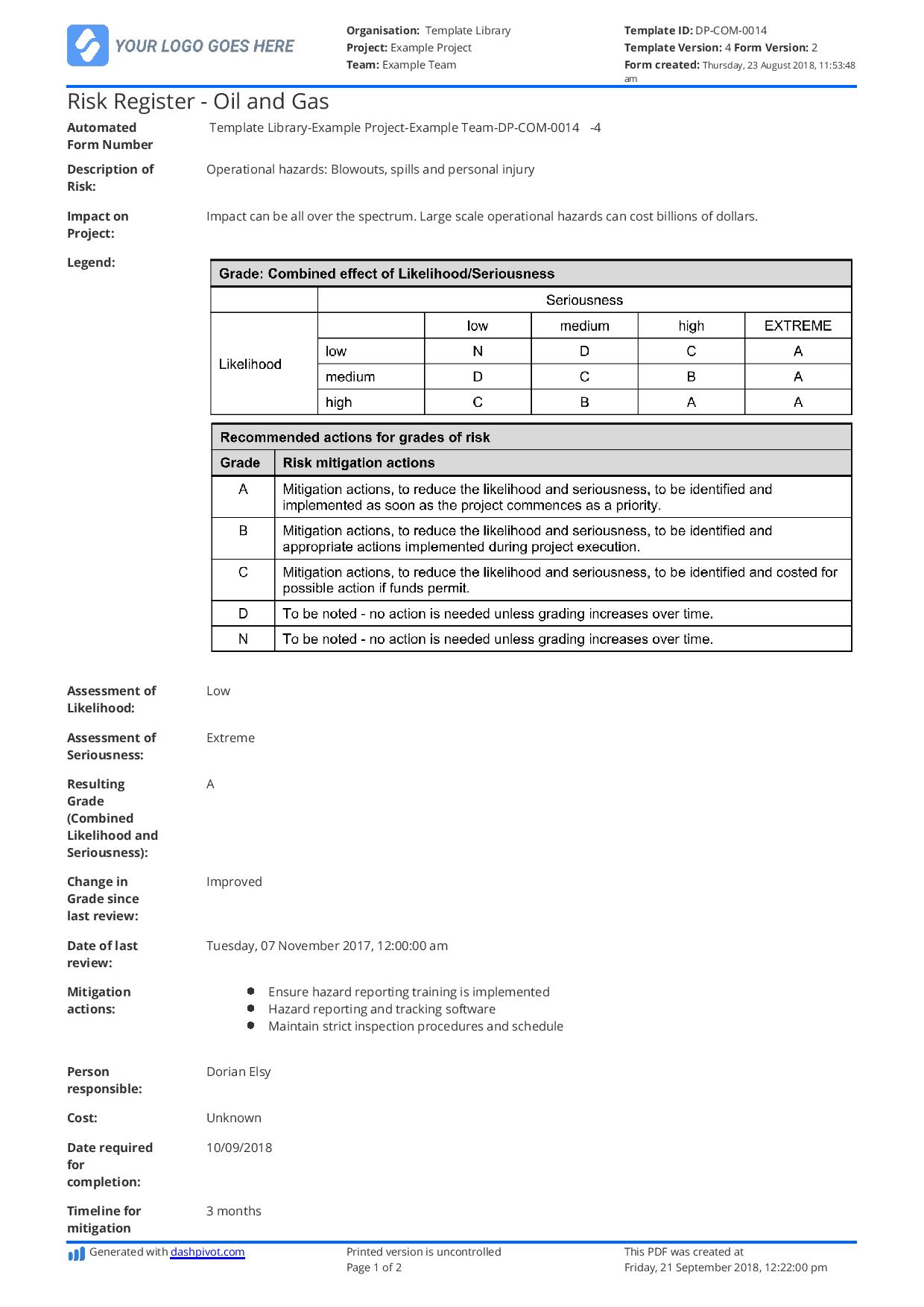
Mitigating oil and gas project risk
Oil and gas companies don't need to be told about the risks associated with their projects, as they are made all too aware of them every day.
But it is important for these companies to look beyond the risks which fall largely outside of their sphere of control and do everything in their power to properly prepare to fight the fight against the common oil and gas project risks.
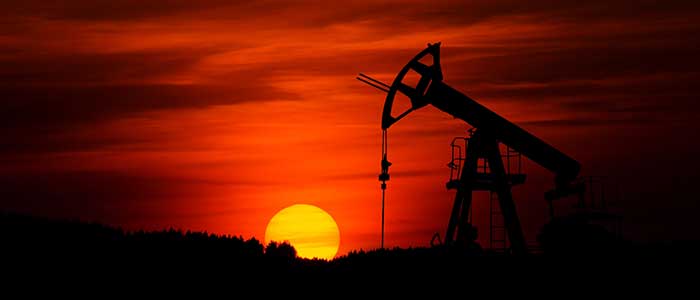
Risk Register for Oil and Gas template
Mitigate the changes of catastrophic and expensive accidents by implementing better risk planning practices for your projects. See the template →